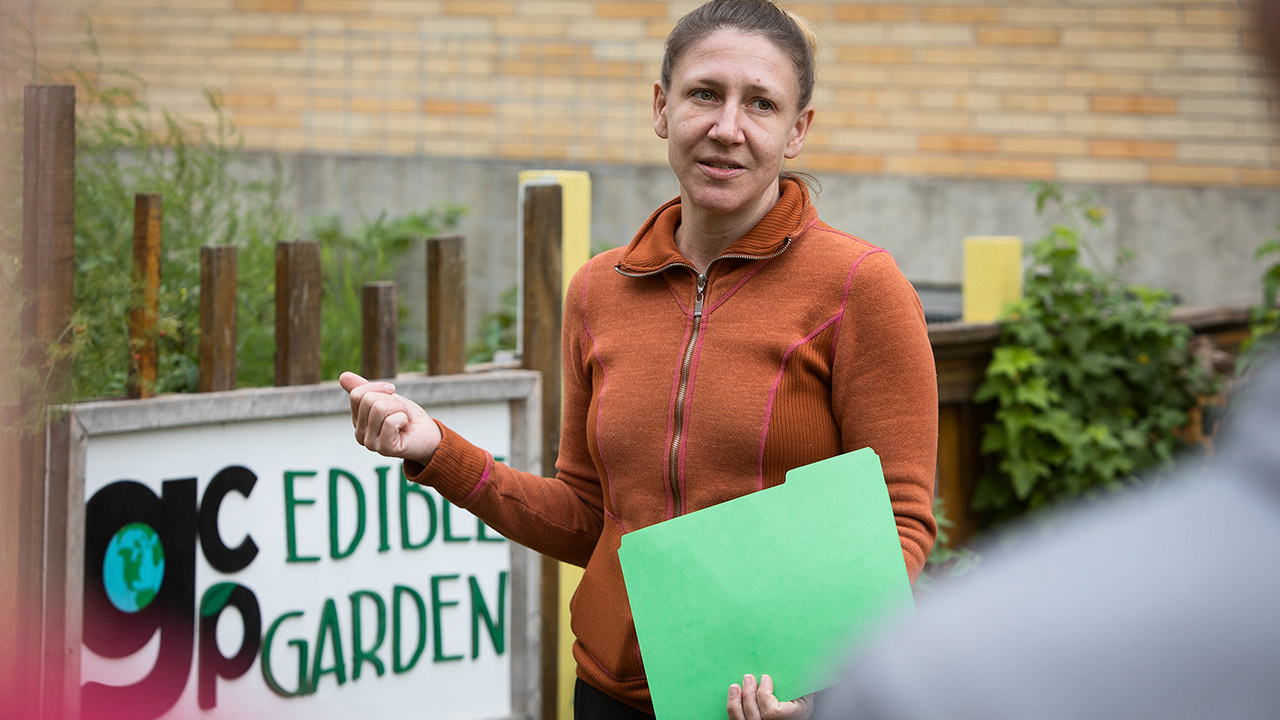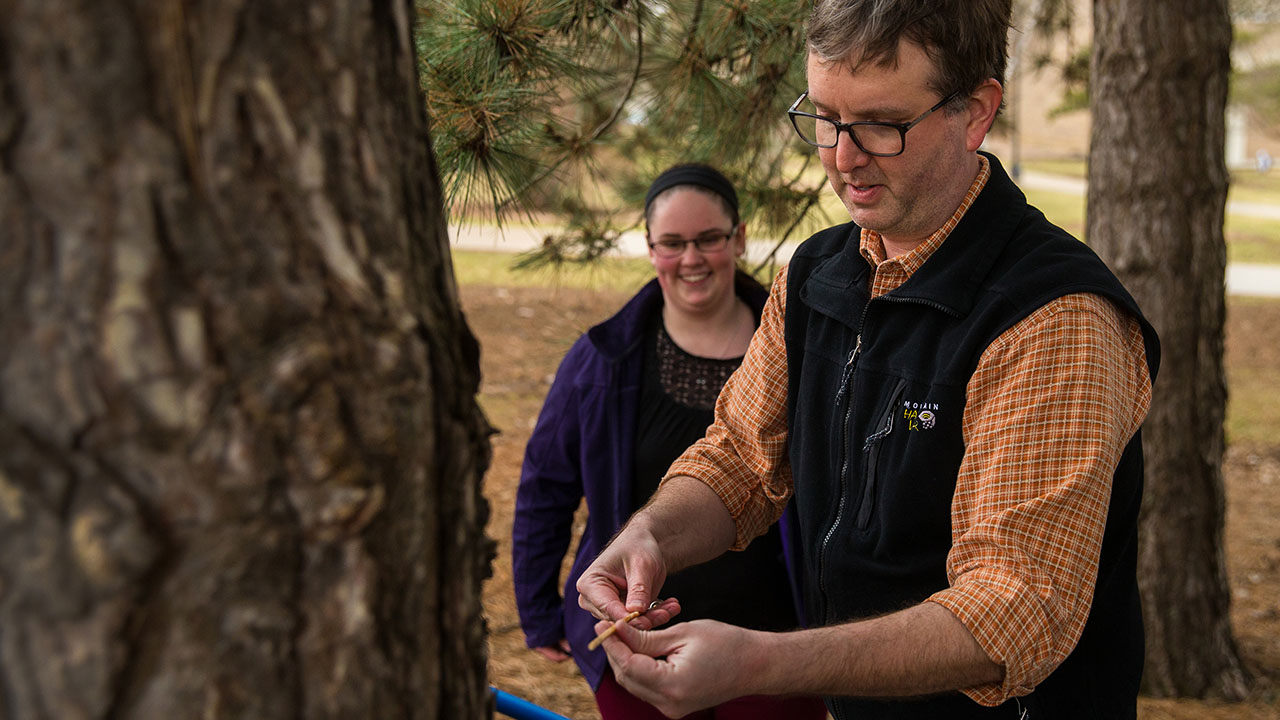

As organizations large and small struggle to adapt to the COVID-19 pandemic, the effects on the University of Wisconsin-Platteville and its surrounding communities are far-reaching. Students are continuing their studies from remote locations, where they face new personal and academic challenges. Faculty are adapting to delivering their courses in a new way and providing support to their students from afar. Yet, even as their own lives are disrupted, university students and staff have contributed to the greater good by sharing their skills and resources whenever possible.
Now, new opportunities for research and community-building have started to arise. For example, Dr. Chris Underwood, geography professor and program coordinator of the new environmental science and conservation major believes COVID-19 could present an intriguing case study for students interested in the environment.
“The majority of scientists agree that human actions are causing our planet to warm, with devastating consequences to life as we know it. COVID-19 however, is, at least temporarily, slowing global carbon emissions. As daily traffic has slowed, scientists are estimating that global carbon dioxide emissions may drop by more than 5% in 2020 – in what would be the largest ever annual drop of carbon dioxide emissions. This is significant, but such a drop in emissions would need to be repeated multiple years in a row to make a difference in global warming,” Underwood said.
UW-Platteville took a significant step in reducing its carbon emissions by eliminating the use of coal from its campus earlier this year. The institution has also made sustainability a priority in its 2019-24 strategic plan. Much of this was driven by student interest, research and support prior to COVID-19. For Underwood and others, this presents new possibilities for action.
While environmental shifts are seen on a global scale, economic impacts are also hitting close to home. The food industry in particular has seen a great deal of disruption with supply chain shifts, restaurant and bar closures, and limited access to goods. This is particularly damaging to the dairy industry and family farms in Wisconsin, which have already suffered hundreds of jobs lost in recent years. However, these farms and the communities they call home are also known for their resiliency, and some believe the response to COVID-19 could strengthen that relationship.
“We are seeing a pandemic-driven shift in consumer mentality among our Southwest Wisconsin communities,” Amy Seeboth-Wilson, the Sustainability Coordinator for UW-Platteville, said. “Many local farmers who source directly to restaurants and consumers were rightfully nervous when Governor Evers’ Safer at Home order was announced. Yet, as locals seek greater safety and reliability in our food delivery system, many of our local farms and CSAs are working overtime to keep up with demand. We also get the sense of a greater appreciation of local businesses in general.”
Seeboth-Wilson also stressed that the pandemic has brought to light disparities in healthcare, income, and other areas. She said that much of her work as sustainability coordinator goes beyond renewable energy initiatives and into these areas of social justice. In a time of global crisis response, it makes her work and the work of so many at UW-Platteville all the more critical.
“Never before in our lives have we had the opportunity to so clearly see our relationships in action. From our direct neighbors, to the grocery cashier, to strangers overseas, COVID-19 has changed the way we think about and interact with others. Even our relationship to our planet has been impacted,” Seeboth-Wilson said. “This moment in time gives us pause to ponder the world we live in and, perhaps more especially, the world we want to create. We know life will never be the same after COVID-19, but dare we imagine a future that can be better because of this experience?”
To learn more about the research and initiatives taking place at UW-Platteville, check out uwplatt.edu/news.